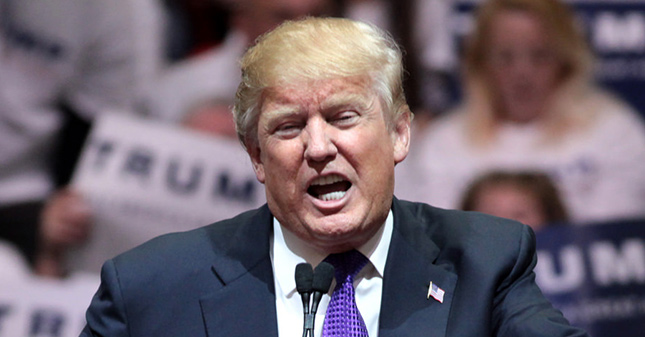
President Donald Trump’s firing of FBI Director James Comey is shocking, but it’s not unexpected.
The idea that Trump would abruptly sack the top law enforcement chief who was overseeing an investigation into the president’s own possible campaign collusion with the Kremlin, and that Trump would do it one day after former acting Attorney General Sally Yates testified about the White House’s ongoing Russian entanglement, is truly outrageous.
But this is what people who have been sounding the alarms about a Trump presidency have feared all along: a constitutional crisis that threatens our democracy. So it’s not unexpected.
We’ve always seen the dark side of Trump and wondered why so many in the press refused to acknowledge it.
That’s why when we read media accounts in January suggesting Trump might soon morph into acting in a more serious, bipartisan mode after his inauguration, the reports seemed like complete fairy tales, since Trump had just spent the previous 18 months showing us exactly who he was.
And that’s why for months we have beseeched the press to hold this erratic president accountable, to take collective action against a White House determined to attack the free press and diminish its role in our democracy. That’s why we urged journalists to call out Trump’s obvious ignorance on key policy issues and his conveyor belt of lies. It’s why we begged journalists to stop normalizing Trump, stop writing valentines to his voters, stop calling him “presidential,” and to not believe anything this White House says – ever.
We implored not for partisan reasons but because we saw the looming danger. We saw Trump's authoritarian tendencies, the Republican Party’s swing to the radical right. We also saw an administration that embraced pathological lying, and we understood the long-term damage deception does to public trust in longstanding democratic institutions.
We recognized all of this, but many in the press corps refused to change their ways. Faced with a radical president, too many journalists continued to cling to the rules and models they used for covering previous administrations. But that doesn’t work. We hope it’s not too late for the Beltway press to make game-changing alterations in their White House coverage. The need for a strong, aggressive and unblinking Fourth Estate is paramount today as Trump lurches toward lawbreaking.
For now, it’s decision time. As Will Bunch writes at Philly.com:
[T]he way we respond to Trump's Tuesday Night massacre will decide whether “the system works” again, or whether this country slowly slides into the realm of the world's all-too-many unstable banana republics.
And let’s be clear, it’s all going to get worse, and it's all going to require even more aggressive reporting. Bunch’s reference to Trump’s “Tuesday Night massacre” hearkens back to the Watergate scandal, when a besieged President Richard Nixon, under pressure to hand over White House audio tapes that would lead to his downfall, ordered the firing of Watergate special prosecutor Archibald Cox.
Nixon’s Saturday Night massacre was generally seen as the pinnacle of his arrogant, lawbreaking ways. But Trump has just gotten started. Nixon’s massacre came approximately 1,700 days into his presidency. Trump’s came after 110 days.
And by the way, Nixon historian Jeffrey Frank says Trump’s firing of Comey actually represents a more dangerous abuse of power than Nixon’s firing of Cox did.
Consider also that Comey's firing came shortly after a “significant escalation” in the FBI's Russia inquiry (emphasis added):
Federal prosecutors have issued grand jury subpoenas to associates of former National Security Advisor Michael Flynn seeking business records, as part of the ongoing probe of Russian meddling in last year's election, according to people familiar with the matter. CNN learned of the subpoenas hours before President Donald Trump fired FBI director James Comey.
The subpoenas represent the first sign of a significant escalation of activity in the FBI's broader investigation begun last July into possible ties between Trump campaign associates and Russia.
Stunning. But not unexpected.
Looking back to Nixon, we all know how the Watergate saga ended, and we know the American press corps came out of that crisis with its head held high. As of today, we have no idea how Trump’s scandal-filled presidency will play out. Nor do we have any assurances that journalists will ultimately hold him accountable.
As the White House careens from one crisis to another, it’s time for the press to radically alter its outlook. It’s time to permanently drop any attempt to normalize Trump, to stop believing any unconfirmed spin from the White House, and to start treating Trump as the extremist that he is.